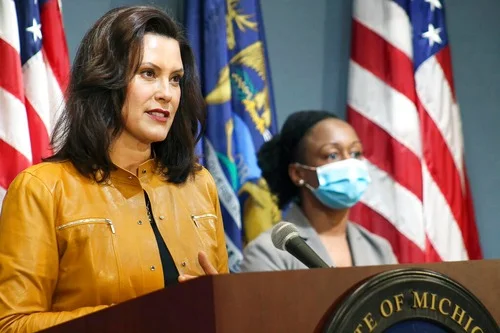A group of 15 U.S. state governors, representing over a third of the nation’s population, unveiled a bipartisan alliance on Wednesday to strengthen public health efforts.
The Governors Public Health Alliance aims to enhance coordination, share strategies, and improve emergency responses across states. This initiative addresses critical health challenges amid shifting federal policies.
Alliance Goals and Structure
The coalition serves as a platform for governors and health officials to exchange best practices, data, and solutions.
It focuses on emergency preparedness, vaccine policies, and technical health issues. The group plans to equip states with toolkits, policy guides, and strategies to tackle health security threats effectively.
Supported by GovAct, a nonpartisan nonprofit, the alliance draws on expertise from national health leaders, including a former federal health agency director. This collaboration ensures governors have access to cutting-edge insights for informed decision-making.
Member States and Leadership
The alliance includes Colorado, California, Connecticut, Delaware, Hawaii, Illinois, Maryland, Massachusetts, New Jersey, New York, North Carolina, Oregon, Rhode Island, Washington, and Guam. Mostly led by Democratic governors, the group emphasizes bipartisan cooperation to prioritize resident well-being.
Massachusetts Governor Maura Healey championed the effort, stating, “While federal support for public health wanes, governors are stepping up to deliver vital care.” The coalition aims to fill gaps left by federal funding cuts, which governors say threaten health systems.
Federal Policy Tensions
The alliance emerges amid concerns over reduced federal health budgets under the current administration.
Governors argue these cuts jeopardize public health infrastructure. In contrast, a federal health department spokesperson defended the administration’s approach, claiming it restores trust through evidence-based policies.
They criticized past state measures, like strict closures and mandates, for eroding public confidence during health crises.
The coalition counters that coordinated state action is essential to address ongoing and emerging health risks, such as flu, RSV, avian flu, and mpox. The group also prepares for global events like the 2028 Olympics, where cross-state health coordination will be crucial.
Regional Precedents and Impact
Some alliance members, particularly from the Northeast and West Coast, have formed similar regional groups to set independent vaccine guidelines.
These efforts respond to changes in federal health policies, ensuring local needs are met. The new alliance expands this model nationwide, fostering broader collaboration.
By sharing resources, the coalition strengthens state responses to seasonal and emerging health threats. It also aims to rebuild trust through transparent, science-driven policies, countering public skepticism from past crises.
Looking Forward
The Governors Public Health Alliance signals a proactive stance as states navigate budget constraints and federal shifts.
By uniting diverse regions, it fosters resilience against health emergencies. The initiative could set a model for other state-led efforts, ensuring communities stay protected.
As states gear up for seasonal illnesses and global events, the alliance offers a unified front. Its success hinges on sustained cooperation and innovative strategies, paving the way for a stronger public health framework.
READ ALSO: Antibiotic Resistance Crisis: WHO Warns of Global Threat in 2025






